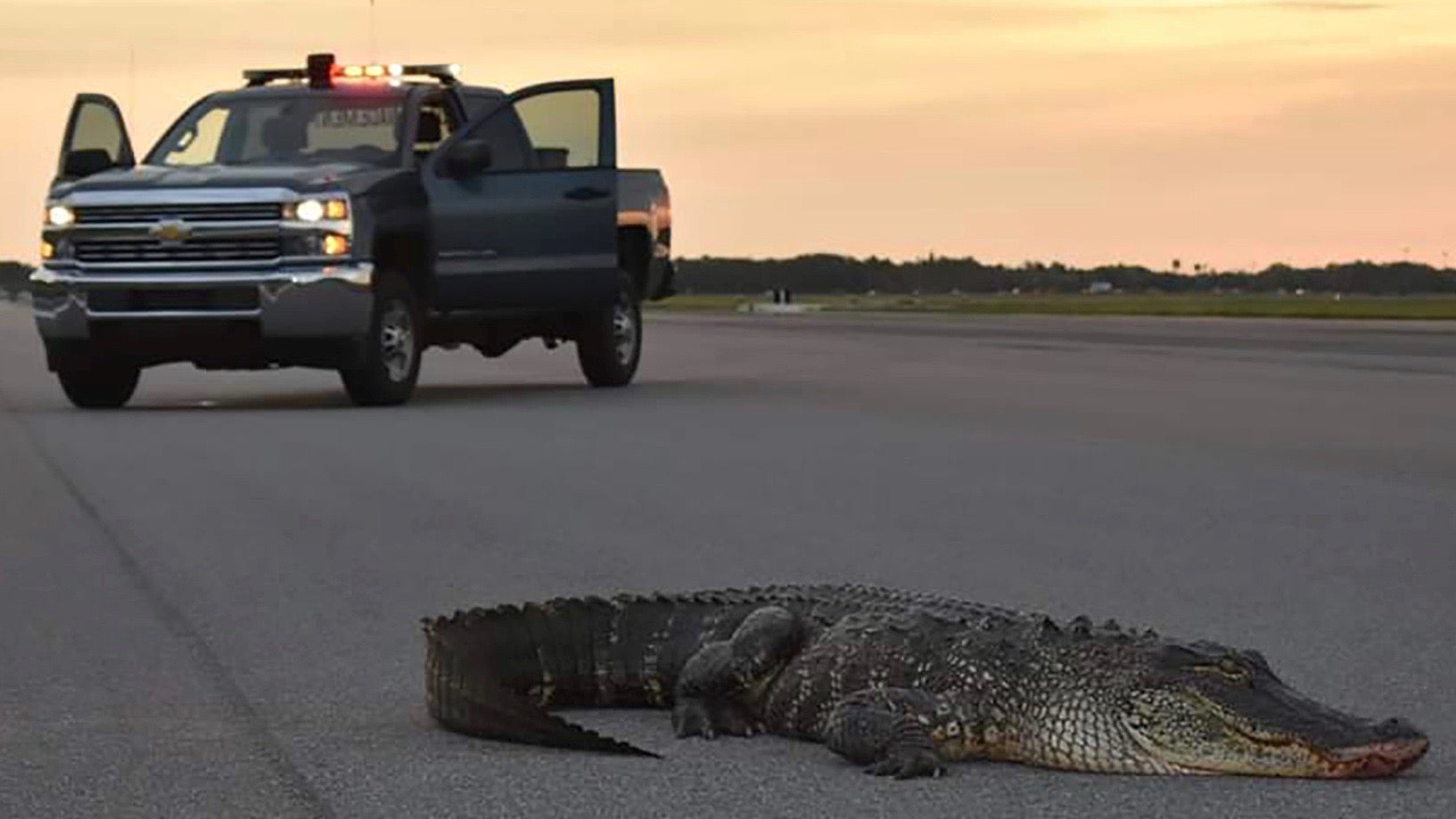Do you have what it takes to be a Florida alligator trapper?
Every place has its dangers, and Florida is no exception. What is exceptional here, however, is that the perils include the very strong possibility of running into an alligator almost anywhere. It’s a problem so common that it’s merely considered a “nuisance.”


Every place has its dangers, and Florida is no exception. What is exceptional here, however, is that the perils include the very strong possibility of running into an alligator almost anywhere. It’s a problem so common that it’s merely considered a “nuisance.”
The prehistoric creatures can be found crossing highways, crashing through backyards, and hanging out at bus stops, as happened on May 9 in Collier County. Officials there had to literally wrestle with a 9-ft (2.7-m) alligator after receiving a phone call for help from residents (the same day that a bobcat was spotted atop a wooden pole alongside the highway in that county). “Kids were waiting nearby at their bus stop, but we’re pretty sure this critter wasn’t heading to school,” the county sheriff’s office wrote in a Facebook post. “Just another day in paradise, huh?”
Now, the state’s Fish and Wildlife Commission (FWC) is enlisting help in efforts to contend with the alligator issue. State wildlife officials receive about 15,000 calls a year about nuisance alligators at their hotline number 866-FWC-GATOR, the Orlando Sentinel reports. If the gator in question is more than 4 ft long and presents a threat to people, pets, or property, the FWC dispatches a trapper. More than 8,000 such creatures were trapped in 2018.
The trappers are independent contractors hired under the FWC’s Nuisance Alligator Trapper (NAT) program, which outlines the qualifications for this position. The contractors must purchase a $50 alligator trapping license and “supply any equipment necessary to take alligators.” According to the FWC, this could include trucks, boats, snares, hooks, and anything else that might come in handy. Trappers must also have insurance for themselves and any assistants, a cellphone and email address, and time to spare so as to “efficiently respond” to calls. They can’t have a criminal history and must show a record of adherence to fish and wildlife regulations. Finally, trappers must be able to “project a positive image to the public and media.”
Given all these requirements, you might imagine that the media-savvy trapper who is licensed, insured, and supplied to the hilt would get paid pretty handsomely for this dangerous gig. That is not the case, however. Nuisance alligator trapping is more of a passion pursuit, it seems.
Adding insult to potential injury, the FWC website warns, ”Nuisance alligator trappers are primarily compensated by their marketing and sale of alligator products (hides and meat) from nuisance alligators taken. Trappers may also receive a small expense reimbursement from the FWC for each alligator taken.” The application form adds that trappers “may need to have additional employment, because being a nuisance alligator trapper may not provide sufficient income to support an individual or family.”